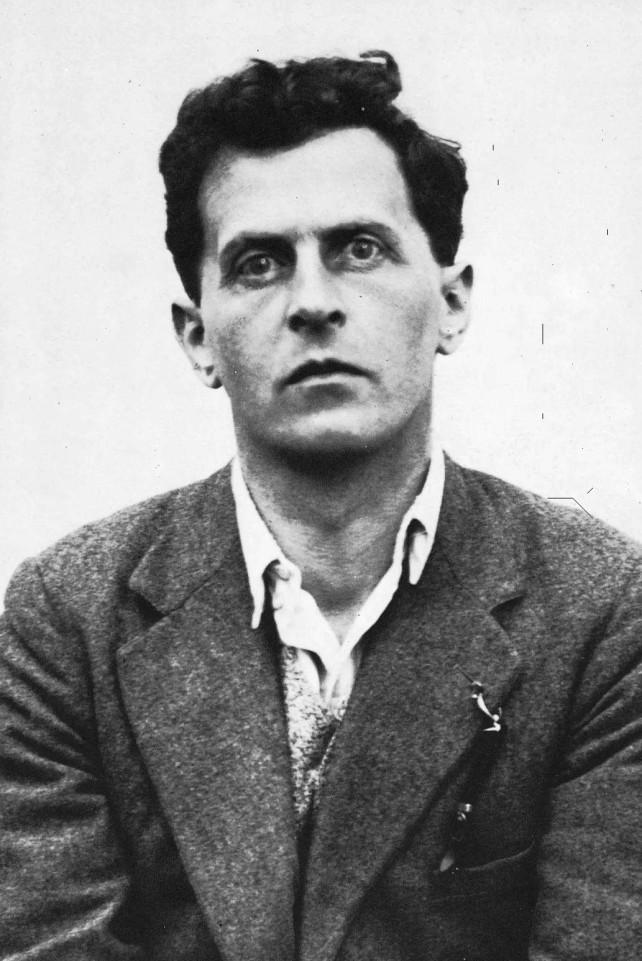He was born into the illustrious Wittgenstein family, whose family rivaled the Rothschilds. He devoted his life to philosophical research, was one of the founders of analytic philosophy, one of the pioneers of logical empiricism, and one of the representatives of the philosophy of everyday language, and was one of the most influential philosophers of the 20th century, Ludwig Wittgenstein. Today, we will enjoy the ten wise sayings of this great British philosopher with a prominent family background, understand the true meaning of life behind his words, and believe that you will have some understanding.

As we all know, wittgenstein's family business covers many industries such as steel, railways, tires, finance and construction, and has a great influence in the fields of politics, economy, culture, philosophy and so on. In terms of philosophy, Ludwig Wittgenstein is the most representative of the family. Born in Vienna, Austria, to a European steel magnate and the daughter of a banker, Hayek, a 1974 Nobel Laureate in Economics, is related to his mother. At home, he was the eighth oldest, the youngest child in the family, and his family was three-quarters Jewish and had studied with his older siblings since childhood, but his grades were not good.
Ludwig Wittgenstein was very hands-on, building a sewing machine at the age of 10, and as a teenager his ambition was mechanical physics, he was eager to devote himself to the physicist Boltzmann, but the latter committed suicide and ruined his ideals. Later, as an engineer, he came into contact with mathematics by studying working principles such as propellers, and he came into contact with the writings of his mentor Russell. He came to England and joined Russell, where the two became mentors and friends, and Russell considered his acquaintance with Wittgenstein to be "one of the most exciting intellectual expeditions" of his life.
At the beginning of World War I, he chose to enlist in the army, completing the first draft of the "Theory of Logical Philosophy" during his military service, and then went to the mountains of southern Austria to work as a primary school teacher. He was extremely enthusiastic about his students, but the children's parents thought he was a "crazy guy", so it was inevitable that he would end up teaching. He then went from being a teacher to an architect, building a mansion himself, which was later used as a building for the Bulgarian embassy. After such a series of legendary and absurd experiences, his academic focus finally shifted to philosophy.
His personality is arrogant, but he can be supported by everyone. He dared to state his "eccentric" views, but made it painful because the crowd could not understand them. He used his unique vision and language cognition and understanding to put forward his own philosophical ideas, especially after the publication of his works "Logical Philosophy", making him one of the most influential philosophers at that time. His philosophical ideas are epitomized in the early view of logical language and the later philosophical view of language. The early philosophical view of language, embodied in his book "Logical Philosophy", he advocated the establishment of a pure logical language to accurately and truly describe the world, he explained the relationship between language, thought, and world with logical relations, and solved all the problems in the book perfectly, so he thought that he had found the truth of philosophy, and then gave up philosophy and became a rural teacher.
The later philosophical view of language was a repudiation of the earlier philosophical views, because he had new knowledge and new cognition, and he abandoned the theory of language and iconography in the Philosophy of Logic and turned to the study of everyday language use, emphasizing meaning and use. He believes that the meaning of words is used, and language is not only to describe things, but also to be a toolbox for people to do things. In his later studies, he paid great attention to the study of everyday language, which deeply influenced the development and progress of everyday language philosophy. He emphasized the use of language, emphasized the role of language in the use of the process, reiterated that the use of language should be subject to rules, a variety of forms of life, to create a diversity of languages.
According to records, Ludwig Wittgenstein was born on April 26, 1889, and today is the 133rd anniversary of the birth of this Russell disciple, a philosopher who made a major contribution to the field of philosophy in the 20th century.